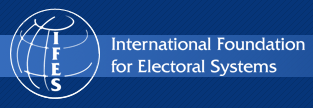Did you miss EJW’s educational debt webinars last month? It’s all good — there’s 4 this month! Don’t miss them!
Educational debt has become a crippling burden for far too many, and especially for those who want to pursue careers in public service. Equal Justice Works provides in depth information on loan repayment assistance programs and relief programs like Income-Based Repayment and Public Service Loan Forgiveness to help everyone pursue the career of their dreams.
Click here to view a schedule of our free, live webinars that teach you how these programs work, and to register for an upcoming session.
Our current sessions include:
Special session presented by the New York State Bar Association and Equal Justice Works: What Every Public Interest Attorney Should Know About Public Service Loan Forgiveness
Wednesday, March 7, 3-4 p.m. EST
The Steven C. Krane Special Committee on Student Loan Assistance for the Public Interest (SLAPI) is hosting a free webinar on loan repayment for public interest/government attorneys and for public interest/government employers on March 7, 2012 at 3:00 p.m. The webinar is collaboration with Equal Justice Works.
SLAPI was created in the summer of 2001 to review the impact of law school indebtedness on the ability of government and public service employers to attract qualified attorneys to undertake careers in public service, and to develop a plan to assist new attorneys in pursuing public service careers by reducing indebtedness. SLAPI has two goals: to continue to provide financial assistance to mid-level government and public interest attorneys – those out of law school 3 to 6 years – burdened with large educational debt (who are less likely to qualify for federal loan repayment assistance), and to help educate attorneys and employers on the developments in the loan repayment assistance landscape.
SLAPI awarded new loan repayment assistance grants – the first since 2008 – at the January 2012 Annual meeting and will award further grants in January 2013 (go here for more information). SLAPI’s website also provides information about federal and state loan assistance repayment options.
Plan Before You Borrow: What You Should Know About Educational Loans BEFORE You Go to Graduate School
Friday, March 9, 3-4 p.m. EST
Interested in government or public interest work after graduating? This webinar will help you plan ahead and make sure you can take full advantage of the College Cost Reduction and Access Act, the most significant law affecting public service in a generation.
The webinar will teach you about:
– Taking out the right kind of loans
– Consolidating or reconsolidating your previous student loans
– How the College Cost Reduction and Access Act can free you to pursue a public interest career
How to Pay Your Bills AND Your Student Loans: Utilizing Income-Based Repayment
Friday, March 16, 3-4 p.m. EDT
Saddled with high student debt? This webinar reviews Income-Based Repayment, a powerful provision of the College Cost Reduction and Access Act that allows anyone with high debt relative to their income to reduce their federal student loan payments.
This interactive webinar will teach you:
– How to understand your federal loans
– How Income-Based Repayment works and if it is right for you
– How to sign up for Income-Based Repayment
Get Your Educational Loans Forgiven: Public Service Loan Forgiveness
Friday, March 23, 3-4 p.m. EDT
For recent graduates with jobs in government or at a nonprofit, this webinar explains how to make sure you immediately begin fulfilling requirements to qualify for Public Service Loan Forgiveness so that your educational debt will be forgiven as soon as possible.
You will learn about:
– The importance of having the right kind of Federal Loans
– What you need to do to qualify for Public Service Loan Forgiveness
– How long it will take to have your educational debt forgiven
 in the District of Columbia and thereby protects society’s interest in the fair administration of justice. PDS is regarded as one of the best public defender offices in the country—local or federal. It is the benchmark by which other public defender systems often measure themselves.
in the District of Columbia and thereby protects society’s interest in the fair administration of justice. PDS is regarded as one of the best public defender offices in the country—local or federal. It is the benchmark by which other public defender systems often measure themselves.


